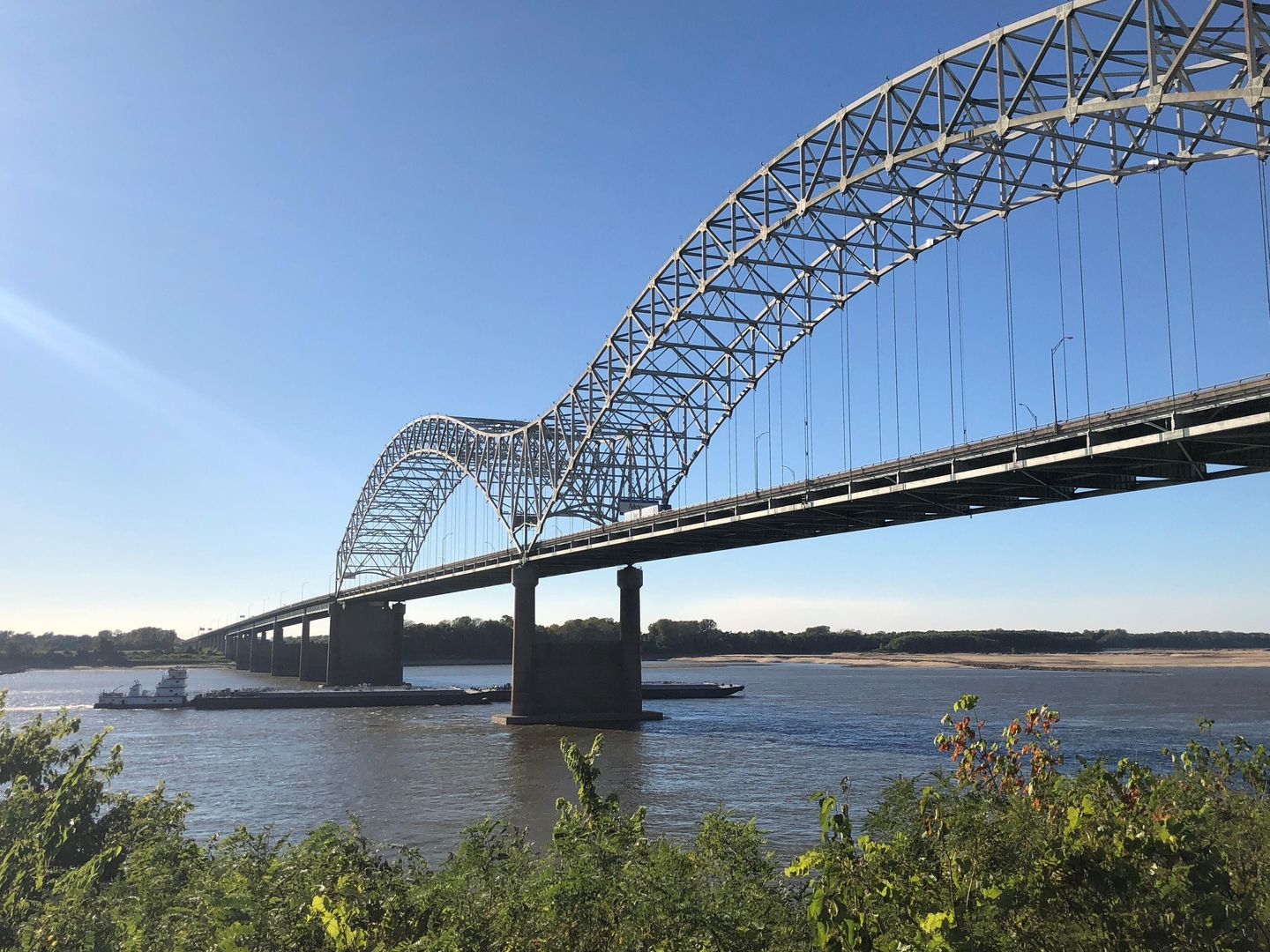
The unusually low water stage within the decrease Mississippi River is inflicting barges to get caught in mud and sand, leading to delays for shippers, leisure boaters and even passengers on a cruise line.
Lack of rainfall in latest weeks has left the Mississippi River approaching document low ranges in some areas from Missouri south by Louisiana. The U.S. Coast Guard stated no less than eight “groundings” of barges have been reported previously week, regardless of low-water restrictions on barge masses.
One of many groundings occurred Friday between Louisiana and Mississippi, close to Lake Windfall, Mississippi. It halted river visitors in each instructions for days “to clear the grounded barges from the channel and to deepen the channel through dredging to stop future groundings,” U.S. Military Corps of Engineers spokesperson Sabrina Dalton stated in an e-mail.
Consequently, dozens of tows and barges have been lined up in each instructions, ready to get by. The stoppage additionally introduced a halt to a Viking cruise ship with about 350 passengers on board, stated R. Thomas Berner, a Penn State professor emeritus of journalism and American research, and one of many passengers.
The Viking ship was initially speculated to launch from New Orleans on Saturday, however the water there was so low that the launch was moved to Baton Rouge, Louisiana, Berner stated.
By Tuesday, the ship was halted close to Vicksburg, Mississippi, as a result of backup attributable to the grounding. It wasn’t close to a dock so passengers couldn’t depart. The ship’s crew saved individuals entertained as a lot as doable with music, video games and different actions.
“A few of us are taking naps,” Berner joked.
The caught barges have been freed noon Tuesday. Berner stated the cruise ship restarted Tuesday evening. It’s on account of arrive in St. Paul, Minnesota, on Oct. 15 .
Almost all the Mississippi River basin, from Minnesota by Louisiana, has seen below-normal rainfall since late August. The basin from St. Louis south has been largely dry for 3 months, in line with the Nationwide Climate Service.
The timing is dangerous as a result of barges are busy carrying lately harvested corn and soybeans up and down the river.
Lucy Fletcher of the agricultural retailer AGRIServices of Brunswick, who serves on the board for the St. Louis-based commerce affiliation Inland Rivers, Ports & Terminals, stated navigation woes on the Mississippi, Missouri and different main rivers have some shippers different technique of transportation.
“Can they divert to rail?” Fletcher requested. “Nicely, there’s not an abundance of rail availability. And often persons are reserving their transportation for fall early within the season. So in the event that they haven’t booked that freight already, you’re going to see individuals in dire straits.”
Fletcher stated that with the provision chain nonetheless snagged following the COVID-19 pandemic, vehicles are also largely booked and unavailable.
To maintain river visitors flowing, the Corps of Engineers has been dredging the Mississippi at a number of spots and positioned limits on the variety of barges every tow can transfer.
Final week, Corps officers in Louisiana stated the low river stage was permitting salt water from the Gulf of Mexico to creep up into the Mississippi. They deliberate an underground levee geared toward conserving salt water out of water remedy vegetation. The shallow water additionally pressured the mid-September closure of a ferry that carries automobiles throughout the Mississippi River between Kentucky and Missouri.
The forecast for a lot of the Mississippi River basin requires continued dry climate within the close to future. Fletcher is hopeful the winter will deliver some aid.
“We’d like yr for many snow soften,” she stated. “The entire system’s simply going to wish some water.”
 DEKYAS NEWS World Breaking News and Trusted Source
DEKYAS NEWS World Breaking News and Trusted Source


